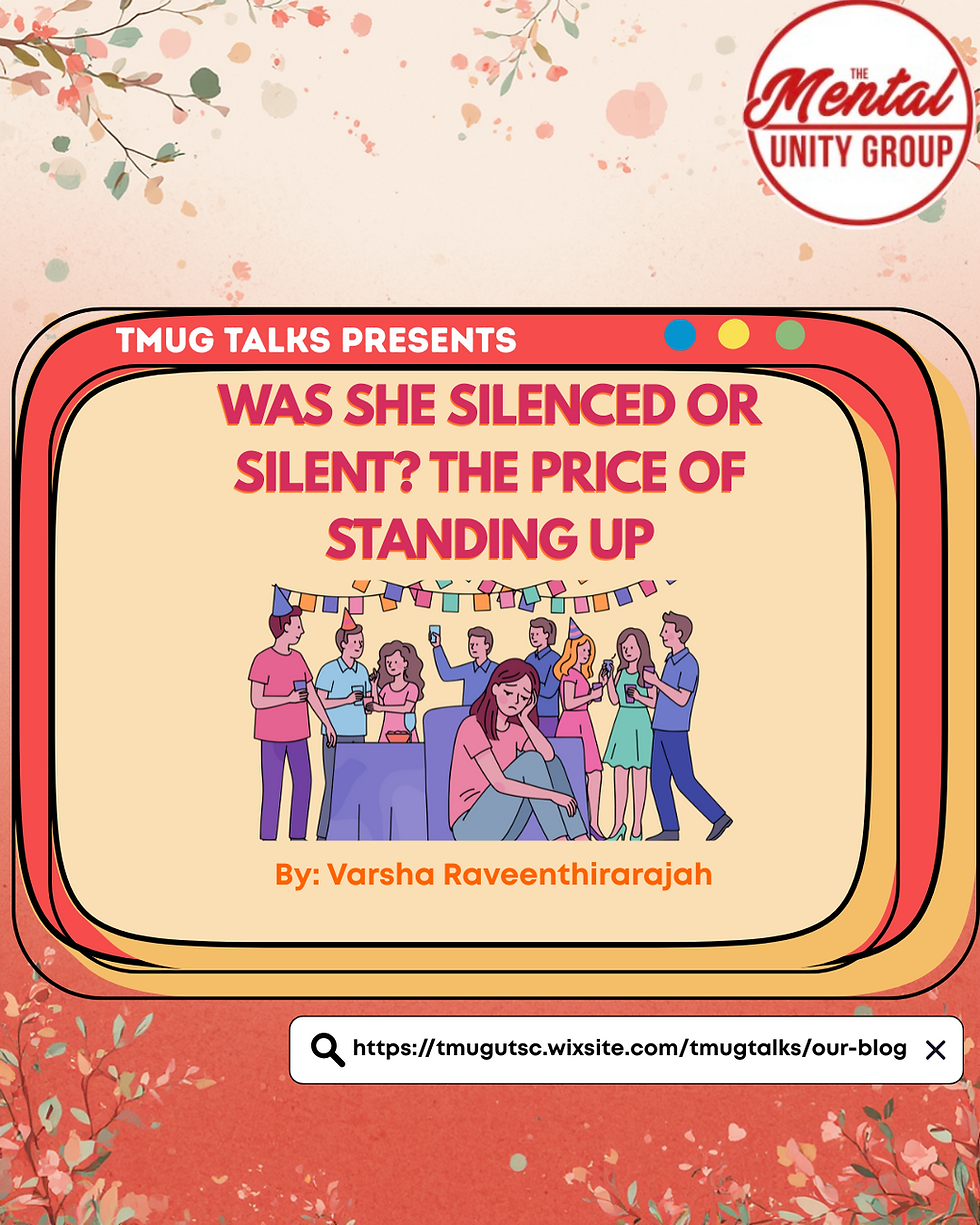When Food Turns Into the Enemy
- Aarya Koppikar

- Jun 12, 2021
- 3 min read

Since the beginning of this pandemic, loneliness, anxiety, stress, and isolation have fueled many individuals to cope in the best way they know how - by eating. Though this is not inherently a bad thing, atypical and unsteady eating patterns and thoughts surrounding food and therefore, body image, could lead to developing disordered eating styles, or an eating disorder. According to the National Institute of Mental Health, about 9% of the population worldwide will suffer with an eating disorder at some point in their life, so this is a topic that is long overdue.
Stress-eating or snacking mindlessly when you’re bored is not what we’re talking about here. Having comfort foods that you reach out to - things like ice cream or pizza - when you’re feeling anxious or lonely are often no cause for concern either. For many of us, we find comfort in good food, and this is a perfectly natural response to living through something as life disturbing as a pandemic. The National Institute of Mental Health states that eating disorders are “serious medical illnesses marked by severe disturbances to a person’s eating behaviors.” Some of the most common types include anorexia nervosa, bulimia nervosa, binge eating disorder, and orthorexia. The symptoms for each of these differ, but in general, some common symptoms that are present across most eating disorders are: showing obsessive behaviors towards calories, weight, and macronutrients, feeling uncomfortable eating in front of others, an intense fear of weight gain, refusing to eat certain types of foods, and a high level of concern regarding their body shape and size.
With social media continuously having larger and larger prevalence in everyone’s lives, along with this comes more comparison, disappointment, and fuel for disordered eating or eating disorders. It’s no secret that social media and entertainment media have a large impact on how we perceive ourselves and our self worth. Scrolling through your feed and seeing an endless stream of rich people with perfect bodies who won’t have to work a day in their life tends to translate on how we view ourselves. You may find yourself thinking - Why don’t I look like that? How are they so happy all the time? Should I be living a life like theirs? These questions likely lead to very toxic mindsets and ways of thinking which will only act as fuel for disordered eating and eating disorders. It’s important to remember, though, that you’re comparing your entire life - the bad, ugly, and soul crushing parts - to that person’s highlight reel. That photo that you’re comparing yourself to has spent hours in photoshop. Lighting and angles also work wonders in fooling the general public, so remember that you’re comparing yourself to ingenuine images, and know when to get off social media when you need to.
Eating disorders are mental illnesses, not a choice made or a flaw in character. Additionally, it’s impossible to tell whether or not someone is struggling with an eating disorder. People with eating disorders can be overweight, underweight or normal weight, so it’s impossible to judge someone just by looking at them. If you or someone you know is showing signs of disordered eating or an eating disorder, there are many resources available to help. Don’t be hesitant to confide in someone you trust like a friend, family member, or professor. Overcoming eating disorders consist of physical, psychological, and behavioral healing. Recovery can take anywhere from months to years, and relapses and backslides are very common. The journey to getting a healthy, happy life back will be a tough road, but will definitely be worth all the effort.
Sources:





Comments